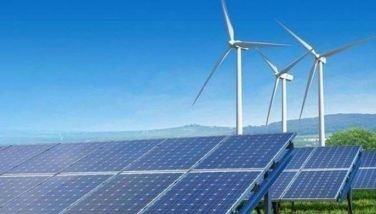NBB meets to discuss hike in biodiesel blend
MANILA, Philippines — The National Biofuels Board (NBB) is meeting next week to determine the appropriate increase in coco methyl ester (CME) content of biodiesel, which has been long delayed.
“The NBB meeting is set on Feb. 11. That will be the final decision point,” Department of Energy-Oil Industry Management Bureau (DOE-OIMB) director Rino Abad said in a text message.
The DOE is part of the influential NBB, the body tasked to study and implement the Biofuels Act of 2006. Other agencies that will take part in the meeting include the Philippine Coconut Authority (PCA), the Departments of Finance, Agriculture, and Labor and Employment.
The DOE-Renewable Energy Management Bureau (REMB) will present results of a road test study using biodiesel blends with higher CME content, Abad said.
The Biofuels Act of 2006 was signed into law during the term of president Gloria Macapagal Arroyo, wherein the blending of one percent (B1) coco-biodiesel started soon after. It was last increased to B2 in 2007.
Pampanga 2nd District Rep. Juan Miguel Arroyo is pushing for an increase in coco biodiesel content of diesel fuel to five percent as mandated by law.
“Coco biodiesel helps our farmers, bolsters the economy, and even reduces air pollution that kills or debilitates so many of our people,” said Arroyo.
By mandating B2 blend biodiesel for transportation, the Philippines has already reduced its carbon footprint by 16.31 percent or 0.0125 kg CO2E per liter, vs. B0 fossil fuel diesel.
Of the 8.8 billion liters of biodiesel used by vehicles in 2021, we have already reduced our carbon footprint by 4.6 million tons (MtCO2E).
“ If we could use B5 throughout 2022, we would have further reduced our carbon footprint by another 588,000 tons on top of the 4.8 million tons CO2E for the year if we remained on B2,” Arroyo said.
The planned increase of the biodiesel blend to B5 was supposed to take place in 2020 but was delayed due to the absence of assurances on the sufficiency of biodiesel supply and logistical limitations brought about by the COVID-19 pandemic.
Should the long-delayed coco-biodiesel upshift to B5 happen, the Philippine Biodiesel Association (TPBA) – the country’s leading group of biodiesel stakeholders – proposed to government regulators a phased, yearly upshift starting with B3, then eventually leading to B5 to cushion sudden adverse market reaction.
TPBA said there is more than enough to meet the expected surge in demand, noting that their combined capacity of 877 million liters is more than sufficient to serve the projected B5 volume total of 650 million liters per year.
Meanwhile, a study by the University of the Philippines revealed the immense carbon footprint and greenhouse gas (GHG) reduction potential of coco-biodiesel.
The UP College of Engineering and Agro-Industrial Technology in Los Baños concluded in its final report that the GHG reduction potential of coco biodiesel sampled from Chemrez Technologies Inc. registered a substantial 78 percent lower carbon dioxide footprint over its lifecycle versus that of diesel fuel.
With the country’s annual consumption of diesel fuel at nearly 14 billion liters per year, B2 has already reduced CO2 emissions by 756 million kilos CO2E. The substantial reduction comes as bonus to the other inclusive benefits of cleaner air, poverty alleviation, improved mileage and lower fuel consumption for motorists.
- Latest
- Trending


























